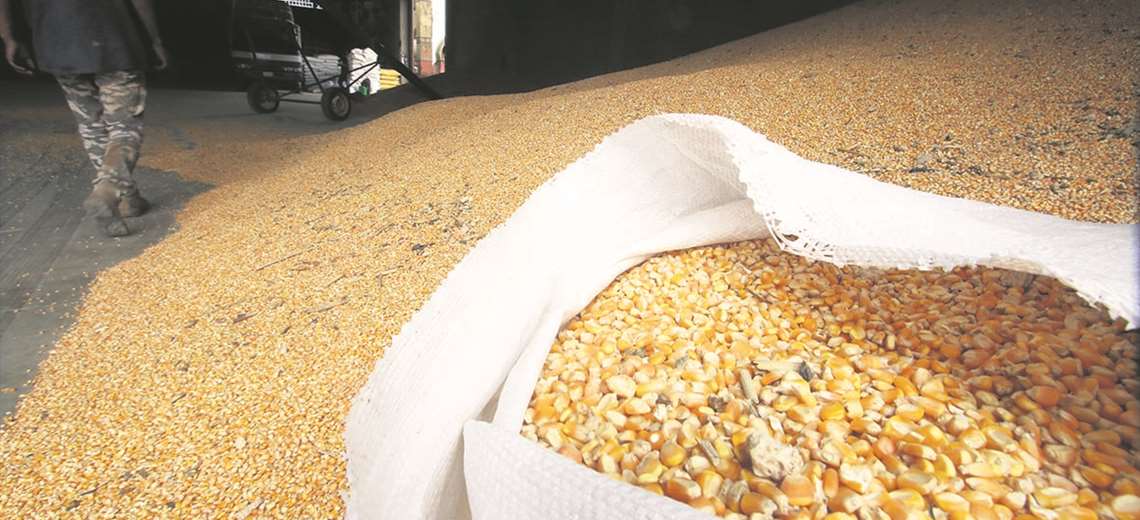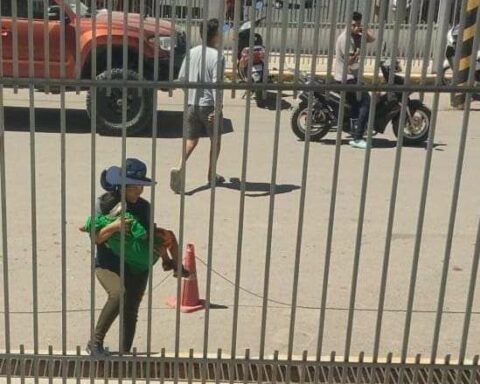The Government has been stubborn in not admitting the ravages of nature itself. A severe drought destroyed 90% of the corn production in the south of the department of Santa Cruz, which contributes with more than 50% of the national grain supply. But since the administration of President Luis Arce Catacora, they insist that the product exists in abundance. The problem is more serious than it seems, to the extent that baby chicken incubators began to sacrifice their birds because they had nothing to feed them.
While this happens, the State does not give its arm to twist and begins to control the prices of chicken meat that, for a week, increased by Bs 2 due to the lack of corn. Even from the Executive they raised the tone threatening to prohibit the export of animal protein, eggs, milk and beef.
“The Government has the mechanisms to suspend exports, if Bolivians’ food is not guaranteed at a fair price,” threatened the Minister of Rural Development and Lands, Remmy González.
The paradox is that Bolivia does not export chicken meat, nor eggs, informed the president of the National Association of Poultry Farmers (ANA), Ricardo Alandia. “Only beef is exported. Prohibit what then? What is not exported? They should worry about supplying the domestic market if they don’t want food to be lacking, they should worry about that,” questioned the leader.
While the Vice Minister of Rural and Agricultural Development, Álvaro Mollinedo, reported that the country has 1,029,000 tons of corn and that, of that volume, there is a surplus of 34,000 tons, since internal consumption “barely” reaches 996,000.
“What does this deputy minister do? They add up what has been produced in five years, they say how much has been consumed in those five years, they say: this minus this, ah! so much left over But what was produced five years ago has already been consumed, sold or smuggled out because they don’t even control that. Grain outlets should control; the grains go to Peru and Chile”, retorted the producer.
Controlled of marketing
To reinforce the official story, yesterday the Vice Minister of Defense of User and Consumer Rights, Jorge Silva, controlled the price of pork and chicken, which registered a drop in the supply centers of the city of Santa Cruz de the saw.
“We can see that the prices of these products are falling, because the supply of corn is already being regularized, which is what the distributors have mentioned,” said the authority. He also argued that police help will even be requested to identify the people who are hiding the corn.
Along these lines, the Minister of Productive Development and Plural Economy, Néstor Huanca, insisted that there is no shortage of corn and pointed out to businessmen that they want to generate a sensation of fictitious shortages.
He accused them of taking political action by hiding the grain. And he said that there can be no shortage because the state company Emapa will collect more than 100,000 tons of corn and will even have its own production of 14,000 tons of this grain.
He recalled that it even helps all livestock producers with subsidized corn.
In this context, he asked the population not to be surprised by a rise in prices.
Retort government figures
From the Association of Poultry Farmers of Santa Cruz (ADA) they retructed the figures of the Government.
Omar Castro, president of that organization, said that, on a national scale, there are more than 3,000 poultry farmers, but the state-owned Emapa delivers its subsidized corn to only 640 producers.
“More than 78% of poultry farmers have to look for them because they do not have access to that corn. The Government is directing everything to blame Santa Cruz for what is happening,” said the leader.
In addition, he maintained that proof of the shortage is that Emapa began to deliver corn quotas when last year there were no restrictions.
This situation led even baby chicken hatchery companies to slaughter up to 60,000 birds because they did not have enough to feed them and because of the reduced demand from farms producing chickens for meat.
“There is no way. The balanced feed that cost 255 dollars a ton now costs us 360 dollars,” explained José Guzmán, manager of a poultry farm dedicated to the production of baby chickens, according to a Unitel report.
The Agricultural Chamber of the East (CAO) requested a meeting with the Government to solve the crisis. However, Minister Huanca ruled it out and said that they will only speak with the real producers and not with that entity.








